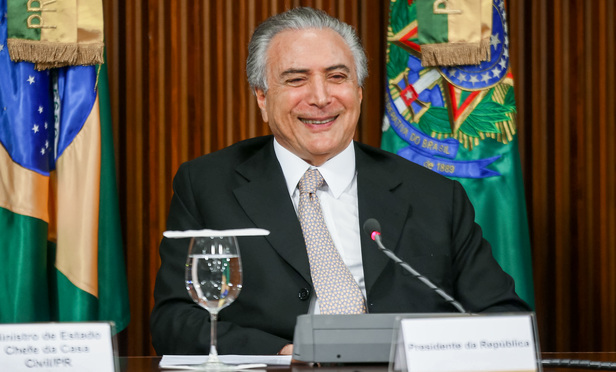Brazil managed to pull off the Rio Summer Olympics and silence the naysayers. Now the country has a bigger act to manage: approve a painful austerity package to help bring on an economic rebound.
Michel Temer, the provisional president who was sworn in after Dilma Rousseff was impeached on Aug. 31, is aiming to halt the interventionist economic policies and fiscal recklessness pursued by Rousseff’s Workers’ Party. His economic team has won praise on Wall Street for formulating policy less like disastrous Venezuela and more in line with the region’s emerging-market darlings, Chile and Colombia. In Argentina, President Mauricio Macri has gained investor confidence by unwinding regressive economic policies, including currency controls, providing a model for Temer and his advisers as they struggle to lift Brazil from a two-year recession, its deepest on record. The country’s budget deficit as a share of gross domestic product is 10 percent, compared with 3 percent in 2013, the peak of the commodities boom.
This content has been archived. It is available through our partners, LexisNexis® and Bloomberg Law.
To view this content, please continue to their sites.
Not a Lexis Subscriber?
Subscribe Now
Not a Bloomberg Law Subscriber?
Subscribe Now
LexisNexis® and Bloomberg Law are third party online distributors of the broad collection of current and archived versions of ALM's legal news publications. LexisNexis® and Bloomberg Law customers are able to access and use ALM's content, including content from the National Law Journal, The American Lawyer, Legaltech News, The New York Law Journal, and Corporate Counsel, as well as other sources of legal information.
For questions call 1-877-256-2472 or contact us at [email protected]



